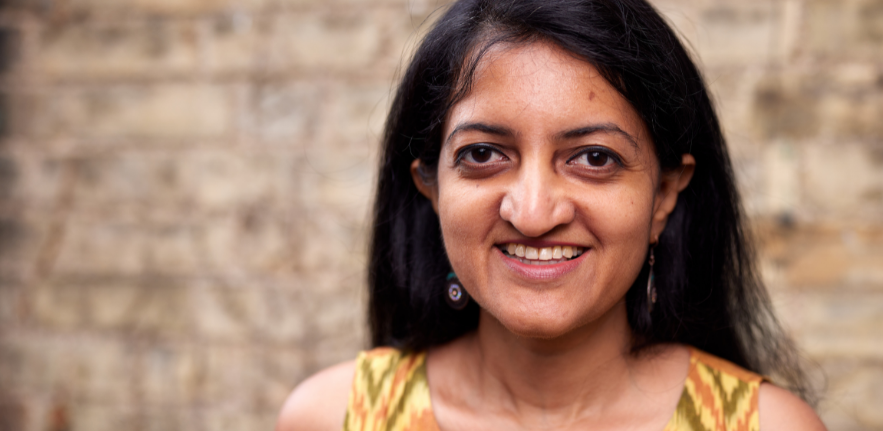
Submitted by Vanessa Bismuth on Fri, 10/09/2021 - 17:05
Professor Suchitra Sebastian, from the Cavendish Laboratory has been recognised by the Breakthrough Prize Foundation with the New Horizons Prize, awarded to outstanding early-career researchers.
It recognises a discovery made by our team of electrons doing what they're not supposed to do. It's gone from the moment of elation and disbelief at the discovery, and then trying to follow it through, when no one else quite thinks it’s possible or that it could be happening.Suchitra Sebastian
She is one of the four University of Cambridge researchers – along with Professors Shankar Balasubramanian, David Klenerman and Jack Thorne – to receive a prize in recognition of their outstanding achievements.
Professor Sebastian has been awarded the 2022 New Horizons in Physics Prize for high precision electronic and magnetic measurements that have profoundly changed our understanding of high temperature superconductors and unconventional insulators.
Her research seeks to discover exotic quantum phases of matter in complex materials. Her group’s experiments involve tuning the co-operative behaviour of electrons within these materials by subjecting them to extreme conditions including low temperature, high applied pressure, and intense magnetic field.
Under these conditions, her group can take materials that are quite close to behaving like a superconductor – perfect, lossless conductors of electricity – and ‘nudge’ them, transforming their behaviour.
“I like to call it quantum alchemy – like turning soot into gold,” Sebastian said. “You can start with a material that doesn’t even conduct electricity, squeeze it under pressure, and discover that it transforms into a superconductor. Going forward, we may also discover new quantum phases of matter that we haven’t even imagined.”
In addition to her physics research, Sebastian is also involved in theatre and the arts. She is Director of the Cavendish Arts-Science Project, which she founded in 2016. The programme has been conceived to question and explore material and immaterial universes through a dialogue between the arts and sciences.
“Being awarded the New Horizons Prize is incredibly encouraging, uplifting and joyous,” said Sebastian. “It recognises a discovery made by our team of electrons doing what they're not supposed to do. It's gone from the moment of elation and disbelief at the discovery, and then trying to follow it through, when no one else quite thinks it’s possible or that it could be happening. It’s been an incredible journey, and having it recognised in this way is incredibly rewarding.”
For the tenth year, the Breakthrough Prize recognises the world’s top scientists. Each prize is US $3 million and presented in the fields of Life Sciences, Fundamental Physics (one per year) and Mathematics (one per year). In addition, up to three New Horizons in Physics Prizes, up to three New Horizons in Mathematics Prizes and up to three Maryam Mirzakhani New Frontiers Prizes are given out to early-career researchers each year, each worth US $100,000. The Breakthrough Prizes were founded by Sergey Brin, Priscilla Chan and Mark Zuckerberg, Yuri and Julia Milner, and Anne Wojcicki.
This story is adapted from a news release which first appeared on the University of Cambridge website.
Image: Suchitra Sebastian. Credit: Onur Pinar
Video: by Nick Saffell
